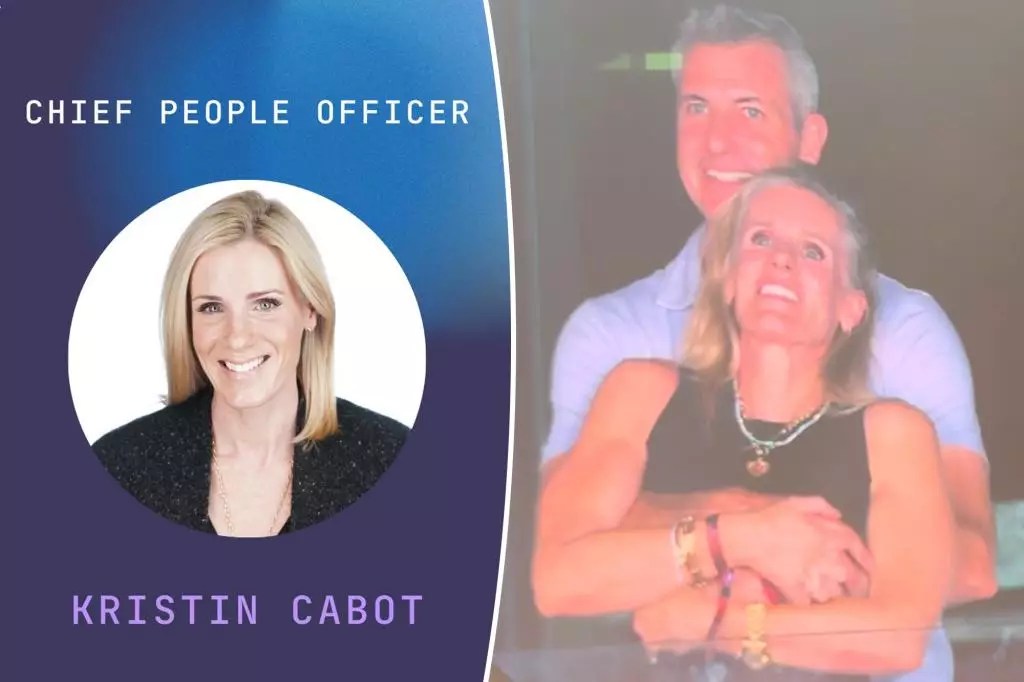In today’s corporate landscape, the veneer of leadership often masks underlying issues of ethics, personal ambition, and social manipulation. Kristin Cabot’s self-proclaimed knack for “winning trust” across levels, from CEOs to assistants, reveals a common misconception—trust as a superficial commodity that can be manufactured through self-promotion rather than genuine leadership. Such narratives distort the reality that authentic influence requires integrity, consistency, and the ability to inspire loyalty—not just deploying strategic image-building. It’s a sobering reminder that even individuals in high-ranking positions might prioritize personal gain or status over cultivating real trust, thus creating a fragile foundation that can collapse in moments of peril or scandal.
Celebrating Corporate Success or Concealing Morality?
Cabot’s boast about shaping “award-winning cultures” and attracting “top talent” exemplifies a prevalent tendency among executives to present idealized corporate visions. These claims often serve as marketing tools, enabling companies to attract investors, clients, and prospective employees under a veneer of innovation and inclusivity. However, beneath the shiny surface, the truth can be far more troubling. The narrative conflicts starkly with the recent viral footage of her closeness with her boss—an intimate act caught during a public event. This incident underscores how the façade of professionalism can quickly dissolve when personal interests and relationships intertwine with corporate ambitions. It questions whether such success stories are built on authentic talent development or merely on strategic manipulation of perceptions.
Power Dynamics and the Dangerous Allure of Influential Relationships
The scandal involving Cabot and Byron highlights a dangerous facet of organizational power — the potential for personal relationships to influence workplace culture and decision-making. When high-level executives indulge in inappropriate behavior or prioritize personal loyalties over professional boundaries, it erodes the integrity of the entire organization. Additionally, the viral nature of the incident exposes a fragility in the corporate shield, where a moment of vulnerability or indiscretion can dismantle years of carefully curated images. This raises critical questions about the responsibilities of leadership: Do they foster genuine respect and accountability, or are they merely engaged in performances designed to mask conflicts and unethical conduct? In this case, the public exposure of their relationship has cast a shadow on the organization’s credibility.
The Shadow of Toxic Leadership and Cultural Decay
Public records and former employee accounts paint a troubling picture of Andy Byron’s leadership style, marked by intimidation and retaliation. The allegations of confrontational behavior, threatening to fire dissenters, suggest a leadership model rooted in fear rather than inspiration. Such toxic environments not only hinder employee well-being but also signal a fragile organizational core that relies on coercion rather than collaboration. When a CEO’s reputation is marred by reports of hostility and intimidation, it reflects deeper systemic issues—an inability to foster a culture of respect, transparency, and growth. The juxtaposition of Byron’s alleged ruthless demeanor with the image he cultivated publicly reveals the chasm between appearance and reality, further emphasizing that surface-level success often comes at the expense of ethical integrity.
The Broader Implications for Corporate Governance
Ultimately, these scandals serve as a stark reminder that leadership is more than just strategic positioning; it’s about accountability and moral responsibility. When power dynamics are misused or relationships cross professional boundaries, organizations risk losing public trust and internal cohesion. This incident should prompt a critical examination of how companies vet their executives—not just for their skill sets, but for their character and capacity to uphold ethical standards. Transparency, genuine accountability, and a commitment to cultivating a healthy workplace culture are the bedrock of sustainable success. Anything less risks setting the stage for future crises that can undo all the supposed progress and growth.
The reality is that true leadership demands authenticity, moral courage, and a willingness to confront uncomfortable truths. The desire for influence and rapid success can easily lead individuals down a path where personal gains eclipse integrity. Society—and corporate boards—must refuse to accept superficial narratives and demand accountability from their most influential figures. Only then can organizations hope to build a genuinely trusting environment that endures beyond scandals and gossip.


This excellent critique of corporate leadership dynamics underscores the urgent need for organizations to move beyond the superficial allure of image-building and cultivate authentic leadership grounded in integrity; only through genuine accountability and ethical practices can companies hope to break the cycle of toxic power dynamics and trust erosion that so often plagues their cultures.
This insightful commentary sheds light on the troubling dynamics that often underpin corporate leadership, illustrating how personal ambitions and questionable ethics can lead to a fragile foundation in organizations; it’s crucial for companies to cultivate true integrity and accountability, rather than relying on superficial narratives, to build a culture of lasting trust and resilience that can endure challenges and scrutiny.
This thought-provoking analysis reveals the unsettling reality that behind the façade of corporate leadership lies a complex interplay of personal ambitions and ethical compromises; as recent incidents have shown, organizations must prioritize genuine integrity and accountability to foster a culture of trust that can withstand scrutiny and challenges, rather than relying on manufactured success that often masks deeper issues.
This compelling examination of corporate leadership exposes the often-hidden dynamics of power and personal relationships that can compromise ethical standards; as evidenced by recent scandals, it is crucial for organizations to prioritize authenticity and accountability over superficial success to cultivate a genuinely trustworthy and resilient work culture.
This analysis poignantly underscores the precarious nature of corporate leadership, emphasizing that true influence hinges on integrity rather than image manipulation; as we witness the fallout from personal relationships and toxic management styles, it becomes clear that organizations must prioritize ethical standards and accountability to foster genuine trust and resilience in their cultures.
The insights on the deceptive nature of corporate leadership highlight how personal ambitions and toxic relationships can undermine trust and integrity within organizations, reminding us that superficial success often conceals significant ethical challenges that need to be addressed for true and sustainable progress.